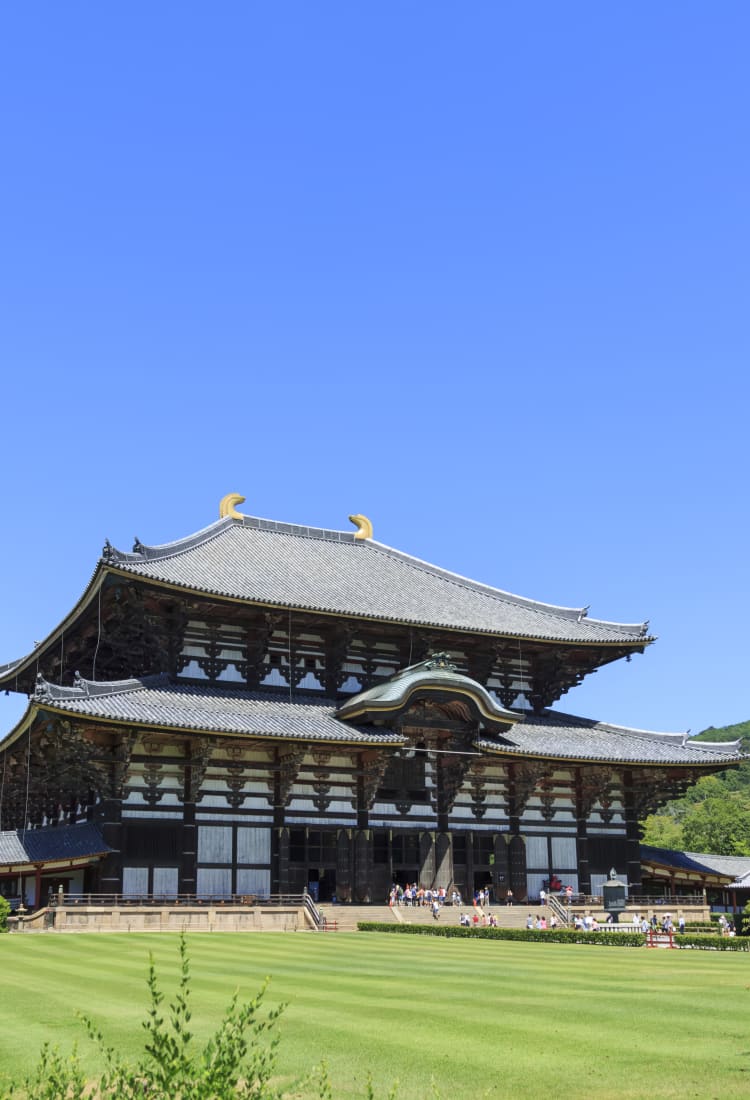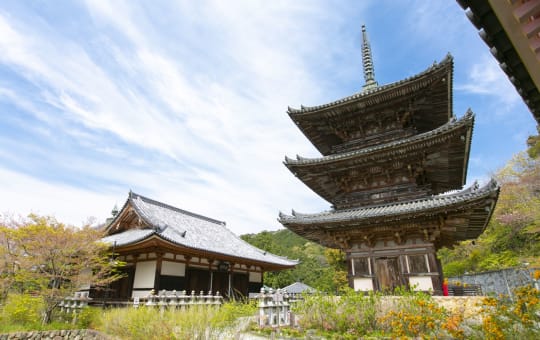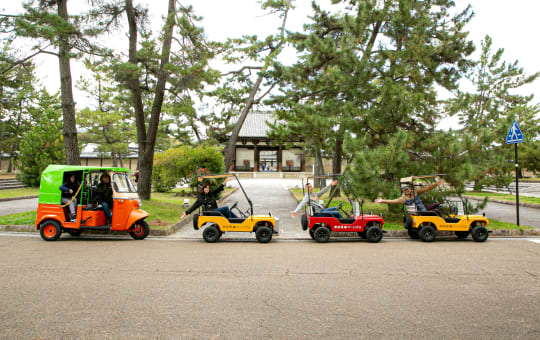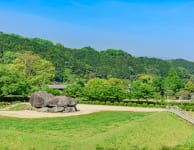

NARA Nara City & Around Free-roaming deer, ancient temples and much to explore at this all-encompassing UNESCO World Heritage Site
Free-roaming deer, ancient temples and much to explore at this all-encompassing UNESCO World Heritage Site
Beautiful Buddhist temples, spectacular Shinto shrines and the excavated site of the great Imperial Palace make Nara City the ultimate historical spot.
Don't Miss
- Ikaruga, home to the world's oldest wooden buildings
- "Historic Monuments of Ancient Nara" including Todaiji, Kofukuji and Yakushiji temples
- Spectacular views of Mt. Ikoma and Mt. Shigi
How to Get There
Nara City is located east of Osaka City and south of Kyoto City and easily accessed by train from both. The city is served by two main stations – JR Nara Station and Kintetsu Nara Station – offering convenient connections depending on your route.
From Osaka, the JR Yamatoji Rapid Service goes directly to JR Nara Station.
From Kyoto, the JR Miyakoji Rapid Service goes directly to JR Nara Station.
From other locations in Kyoto or Osaka, the Kintetsu private railway may be the most convenient alternative.
Nara Highlights
Visit the world's oldest wooden structures
The Ikaruga area near Nara City is home to Horyuji Temple, the world's oldest wooden building. Also worth a visit is the nearby Hokiji Temple , with its magnificent three-story pagoda. Both are UNESCO World Heritage Sites, packed with historical intrigue.
Access: Take the JR Yamatoji Line from JR Nara Station to Horyuji Station (10 minutes), then walk or take a bus from the station.
Explore Nara's Ancient Buddhist Heritage
Close to central Nara is the site of what was once the most important building in Japan, Heijo Palace . Although little remains of the original structures, the buildings at the Heijo Palace site have been recreated using authentic period-appropriate materials.
Access: Take the Kintetsu-Nara Line from Kintetsu Nara Station to Yamato-Saidaiji Station, then walk for 20 minutes.


Find Tranquility in Nara's Quiet Corner of Temple Heritage
Near to this is the Saidaiji area. The two largest temples in this area are Akishino Temple , known for its peaceful moss garden, and Saidaiji , one of the Nanto Shichi Daiji, literally "the seven great temples of the southern capital” (a.k.a. Nara).
Access: Take the Kintetsu Nara Line bus from Yamato-Saidaiji Station to Akishinodera Temple bus stop (5 minutes).
Is it worth travelling beyond central Nara?
Visitors who are willing to travel a little further outside of the city will enjoy the Yamatokoriyama area. This area is only a short distance from sights such as Yakushiji and can be combined with them in a day trip.
The area is known for the spectacular Koriyama Castle . This castle is famous for its peaceful garden and its stone wall, which features stones from a variety of sources.
The defensive structure serves as a powerful reminder of Japan's military past. Yamatokoriyama is the center of the Japanese goldfish industry, and there is even a Goldfish Museum.
Access: Take the Kintetsu Kashihara Line from Kintetsu Nara Station to Kintetsu-Koriyama Station, or the JR Yamatoji Line from JR Nara Station to JR Koriyama Station (10 minutes).
Where Can You Hike Through History Near Nara?
People looking to experience the more natural side of Nara should head to Kuragari-toge which combines a satisfying hike with deep history. This can be combined with a cultural experience at the nearby Hozanji Temple.
Access: Take the Kintetsu Nara Line from Kintetsu Nara Station to Minami-Ikoma Station (20 minutes).
Further afield is the Mt. Shigi area. The area's cultural attractions include Chogosonshiji Temple with its tiger-inspired architecture, and Kongosenji , famous for its hydrangeas.
Access: Take the JR Yamatoji Line from JR Nara Station to Oji Station (15 minutes), then transfer to a Nara Kotsu bus bound for Mt. Shigi (20 minutes).
Whether you want to take your time with each location or see as much as possible in a day, Nara City is a great base for your adventures.






























































